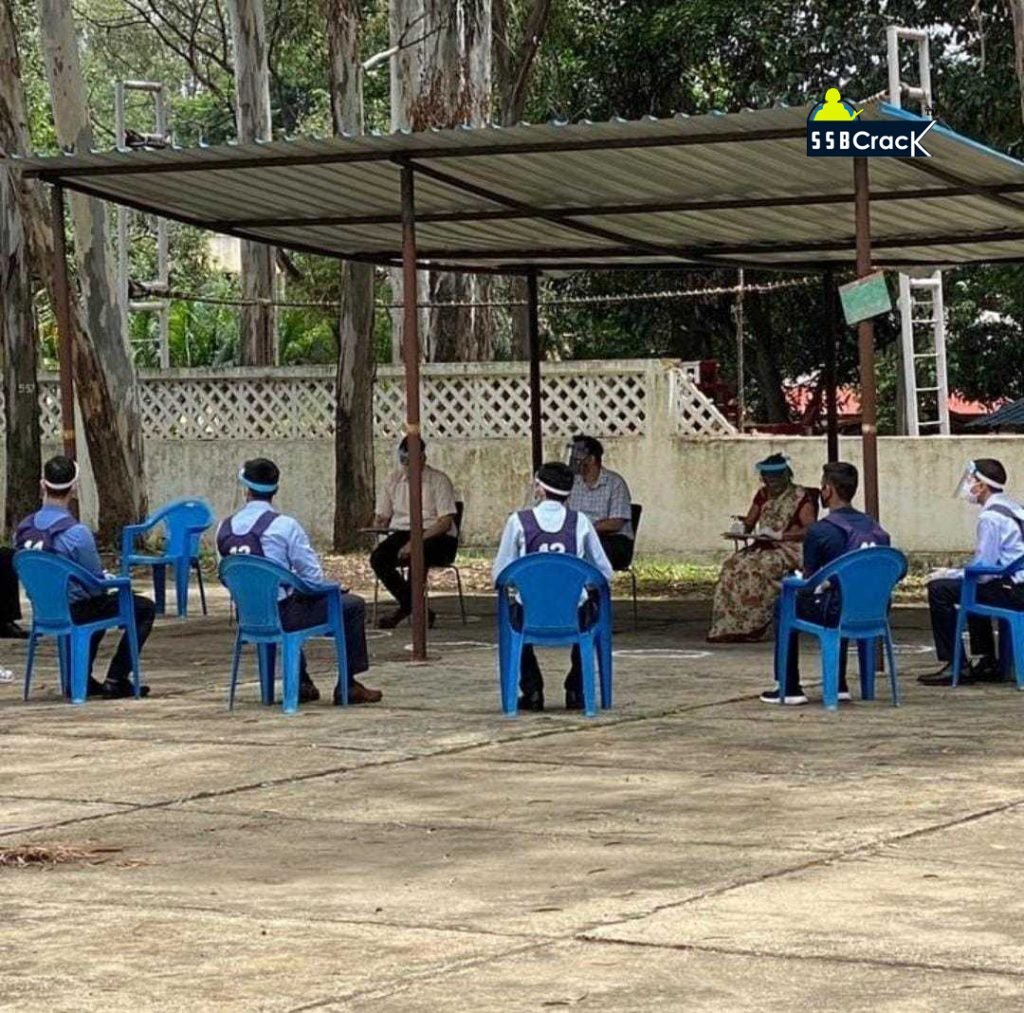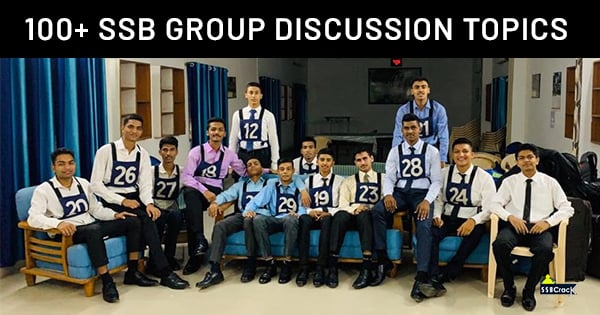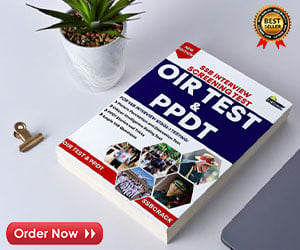A group discussion is a method of assessing a group of candidates by analyzing their ability to communicate and express their opinions on a given topic. It is an essential part of the selection process in various competitive exams and interviews, including the SSB (Services Selection Board) Interview for candidates seeking selection into the Indian Armed Forces.

In an SSB Interview, the group discussion is conducted to assess the candidate’s interpersonal and communication skills, ability to work in a team, leadership qualities, and attitude towards problem-solving. The topics for the group discussion are generally related to current affairs, social issues, or personal experiences. The group is usually given a limited time to discuss the topic and arrive at a consensus.

The importance of group discussion in the SSB Interview lies in the fact that it helps in evaluating the candidate’s personality traits, which are crucial for a career in the Armed Forces. It allows the assessors to observe how the candidate interacts with others, presents their viewpoints, and how they handle conflicting opinions. Group discussions also test the candidate’s ability to analyze and synthesize information, which is essential for making quick and informed decisions in real-life scenarios.

In addition, group discussions promote teamwork, collaboration, and mutual respect, which are vital qualities for the Armed Forces. It is also an opportunity for the assessors to assess the candidate’s knowledge, clarity of thought, and ability to articulate their opinions effectively. Overall, group discussions play a critical role in the selection process for the SSB Interview and help in selecting the most suitable candidates for a career in the Indian Armed Forces.
Here are some tips for performing well in a Group Discussion during an SSB interview:
- Understand the topic: Make sure you understand the topic properly before starting the discussion. If you have any doubts, clarify them before beginning.
- Speak clearly: Speak clearly and confidently. Use simple language and avoid using jargons or complicated words. Speak loudly enough so that everyone can hear you.
- Listen carefully: Listen carefully to what others are saying. It is important to understand other people’s viewpoints before expressing your own. Also, it shows that you are a good listener.
- Be polite and respectful: Be polite and respectful towards others, even if you do not agree with their viewpoints. Do not interrupt anyone while they are speaking.
- Express your views clearly: Express your views clearly and logically. Use examples and facts to support your argument.
- Stay on topic: Stick to the topic of discussion and do not deviate from it. Do not bring in unrelated topics.
- Do not dominate: Do not dominate the discussion. Give everyone a chance to speak and express their opinions.
- Be a team player: The aim of a Group Discussion is not to prove that you are the best but to arrive at a consensus. Therefore, be a team player and try to arrive at a common conclusion.
- Be confident: Finally, be confident and believe in yourself. Show that you are a good communicator and a team player.
Remember, SSB Group Discussion is not just about speaking, but it is also about listening, understanding, and arriving at a consensus. So, follow these tips to improve your chances of doing well in the Group Discussion round of SSB interview.
Group Discussion (GD) Topics for SSB Interview
- Reservation for EWS upheld by Supreme Court: Progressive or Regressive?
- Collectivism vs Individualism: Balancing the needs of the group and the individual
- Hybrid Working: Examining the Advantages and Disadvantages
- PM Gareeb Kalyan Anna Yojana: Evaluating the Effect on India’s Impoverished Population
- Lessons for the World from the COVID-19 Pandemic: What We Have Learned So Far
- Is Technology Making Us Less Human? The Impact of Technological Advancements on Our Humanity
- Marital Rape: Should It Be Criminalized to Protect Spousal Rights?
- The Impact of the Internet of Things (IoT) on Our Daily Lives: Pros and Cons
- Nirbhaya Case and the Need for Stringent Laws: Examining the State of Women’s Safety in India
- Khap Panchayats and Their Relevance in Modern Society: A Discussion on Their Legitimacy
- Cynicism in Society: Are We Becoming More Negative and Distrustful?
- Communalism and Its Effect on Social Cohesion: The Importance of Unity in a Diverse Society
- The Significance of Winning: Is Winning Everything in Life?
- NOTA as an Emerging Priority for Citizens: An Evaluation of Its Role in Elections
- Competitive Backwardness: Is India Becoming a Leader in the Race to the Bottom?
- COVID and Veganism: Is a Plant-Based Diet the Solution to Preventing Future Pandemics?
- Sensitivity in Society: Are We Becoming Too Easily Offended?
- Religious Conversion Laws and Matrimonial Freedom: A Debate on the Need for Legal Restrictions.
- Workplace Gender Equality: Bridging the Gap
- Higher Education in India: Challenges and Opportunities
- Creativity vs Knowledge: Which is More Valuable?
- Group Discussion in Hiring: Necessity or Not?
- E-learning: Benefits and Obstacles
- Employment Opportunities in Rural Areas: Finding Solutions
- Stubble Burning and Winter Smog: Pros, Cons, and Challenges
- The State of Agriculture in India: Issues and Concerns
- MSP System in Agriculture: Relevance in Today’s World
- Capitalism and its Flaws: Comparing with Other Systems
- Public Sector Job Security: Myth or Reality?
- Government Spending and Economic Problems: Is it Effective?
- Election Freebies: Boon or Bane for the Economy?
- Industry 4.0: Embracing the Future
- Reviving the Indian Economy: Strategies and Approaches
- Controversy as a Marketing Tactic: Is it Ethical?
- Cryptocurrency in India: Legalization and Implications
- Circular Economy: Promoting Sustainable Development
- Markets: Found or Created?
- The Importance of Budgeting: Does it Make a Difference?
- Physical Infrastructure and Social Equality: Correlation or Not?
- NPA Problem: Is a Bad Bank the Solution?
- Economic Reforms in India: Missed Opportunities in the Past?
- Developed Economy: Redefining the Concept
- Defection in Indian Politics: The New Norm?
- National Health ID: Pros, Cons, and Challenges
- Political Parties and the RTI Act: Should They Be Accountable?
- The Impact of Crony Capitalism on India
- Temples of Political Leaders: Rational or Not?
- Feasibility of 5G in India: Scalability and Viability
- Uniform Civil Code: Challenges and Implications
- Online Education: Beneficial or Detrimental?
- Atmanirbhar Bharat and Deglobalization: Moving Backwards?
- India’s Population: The Biggest Challenge?
- Right to Privacy as a Fundamental Right: Should it be Absolute?
- India at 75: Roadblocks to Becoming a Developed Nation
- Women’s Empowerment and 50% Reservation in Panchayats
- India as a Soft Power in the 21st Century
- Private Sector in Defense Manufacturing: Balancing National Security and Economic Growth
- Rising China as an Expansionist China: Fact or Fiction?
- AUKUS and the Indo-Pacific: Implications for Regional Politics
- Engaging with the Taliban Regime in Afghanistan: Is it a Viable Option?
- The Awkward Alliance of the ‘New Quad’
- CoP 27 and Climate Change: Collective Action for a Sustainable Future
- Joe Biden and India-US Relations: Prospects and Challenges
- Is the 21st Century the Asian Century?
- Russia-Ukraine War: India’s Position and Role
- Iran Nuclear Deal Breakdown: Impact on the Global Order
- Efficiency vs Honesty: The Dilemma of Leadership
- Pervasive Technology and Cyber Zombies
- Data Localization: Balancing Benefits and Challenges
- Green Jobs and Sustainable Development: A Necessity for the Future
- Disaster Management in India: Strategies and Lessons Learned
- Climate Change: Real or Not?
- Wildlife Corridors: A Luxury or a Necessity?
- India’s Climate Targets and Leadership on the Global Stage
- Private Trains in India: Pros and Cons
- Disinvestment as a means of privatization: Is it ethical?
- Hosting the Olympic games in India: Pros and Cons
- Electric vehicles in India: Challenges and Opportunities
- Placements in India: Current Scenario and the Way Forward
- Ethics in Business: Importance and Impact
- Knowledge-based economy: A key to India’s economic growth?
- Fintech and Banks Collaboration: Is it a Win-Win Situation?
- Fixed Pay vs Variable Pay: Which is better for employees?
- Innovation vs Invention: Which one drives progress more?
- India’s Middle-Income Trap: How to avoid it?
- Reliance Jio’s Impact on the Indian Telecom Industry
- Bridging the Digital Divide in India: Can PM-WANI be a game-changer?
- Stock Market: Investing or Gambling?
- Consumerism and Materialism: Are we going overboard?
- India’s International Sports Performance: Individual Talent or Government Support?
- Reservation Policy in India: Successes and Failures in Addressing Social Inequities
- Legalizing Cannabis in India: Pros and Cons
- Legalizing Sex Work in India: A Step towards Women Empowerment?
- Mars Exploration: Should we prioritize Earth instead?
- The Third World War: Will it be Fought over Computers?
- Censorship on OTT Platforms: Balancing Freedom of Expression and Regulation
- Artificial Testosterone Boost in Female Athletes: Ethical Implications
- Solutions without Borders: Addressing Global Challenges
- Judicial Reforms in India: Need, Challenges, and Way Forward
- Legalizing Same-Sex Marriage in India: Equality or Controversy?
The GD round is conducted to test the candidate’s ability to work in a team, which is an essential quality required for any candidate seeking a job in the defense forces. Moreover, the selection process for the defense forces involves various stages of assessment, and the GD round is one of them.
Therefore, it is important for candidates to perform well in the GD round to increase their chances of getting selected in the SSB Interview. Candidates must demonstrate their leadership qualities, decision-making abilities, and communication skills while participating in the GD round.














